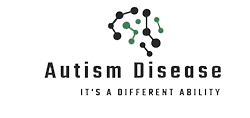Understanding Autism
Autism, also known as Autism Spectrum Disorder (ASD), is a complex neurodevelopmental disorder that affects individuals in various ways. It is characterized by difficulties in social interaction, communication challenges, and restrictive and repetitive behaviors. While there is no known cure for autism, early diagnosis and appropriate support can make a significant difference in the lives of those with the condition.
Despite the challenges it presents, individuals with autism have unique strengths and abilities. By focusing on their strengths and providing a nurturing environment, we can unlock their incredible potential.
Embracing Neurodiversity
Neurodiversity is a term that recognizes and celebrates the diversity of human brains and minds. It emphasizes the importance of understanding and accepting individuals with autism as valuable members of society. By embracing neurodiversity, we can create a more inclusive world where everyone has the opportunity to thrive.
Autism is not a disease to be cured; it is a different way of thinking and experiencing the world. We should strive to promote acceptance and understanding, rather than trying to change individuals with autism to fit into the neurotypical mold.
Supporting Individuals with Autism
Providing support and resources to individuals with autism is crucial for their overall wellbeing and success. Here are a few ways we can make a positive impact:
- Early Intervention: Early diagnosis and intervention play a vital role in improving outcomes for individuals with autism. Identifying the signs of autism in young children and accessing early intervention services can greatly enhance their development.
- Sensory-Friendly Environments: Many individuals with autism are sensitive to sensory stimuli. Creating sensory-friendly environments can help reduce anxiety and promote a sense of calm. This can be achieved through the use of adaptive lighting, noise reduction strategies, and providing access to sensory breaks.
- Individualized Education: Education tailored to the unique strengths and needs of individuals with autism is essential. Personalized learning plans and accommodations can support their academic, social, and emotional growth.
- Community Support: Building a supportive community is key to ensuring individuals with autism have a sense of belonging. Encouraging inclusive activities, organizing support groups, and promoting autism awareness can foster a sense of community and provide a support network for individuals and their families.
By providing the necessary support and embracing neurodiversity, we can empower individuals with autism to reach their full potential and lead fulfilling lives. Together, let’s create a world where everyone is valued and included.
